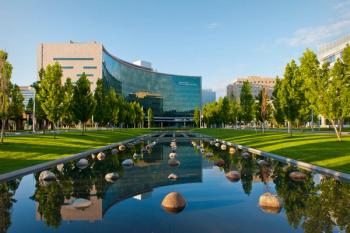
Healing the Healers: Giving Physicians Room to Breathe
Technology can help fight physician burnout.
American healthcare is at a critical crossroads. For the third year in a row,
In times of uncertainty, people look to their physicians for reassurance, guidance, answers and support. Medical doctors are considered among the most
So herein lies the big question. How are physicians expected to be the advocate patients need if they are in need of healing themselves? They can’t. Or at least it’s extremely difficult — and that’s a big problem. The well-being of our physicians is under scrutiny like never before, with good reason.
Over the past several years, physician burnout elevated to the national stage. The issue is widespread and growing. The Physicians Foundation’s “2018 Survey of America’s Physicians”
Patients want their physician to empathize with them, to have the capacity to listen. The very definition of burnout removes this ability from physicians. Our emerging value-based approach to healthcare is moving away from acute care and focusing more on techniques that are going to produce long-standing results for patients to close that revolving-door effect.
For example, The New York Times recently published
“With motivational interviewing, patients tend to rate their providers as more empathic and as better listeners,” according to the article.
Furthermore, the article found that physicians who practice this approach may also experience less burnout. According to Melissa A. Faith, a child clinical psychologist at Johns Hopkins All Children’s Hospital quoted in the article, “The providers tend to feel they are making a difference in patients’ lives.” However, in order to have this capacity to listen and focus on patients, physicians need room to breathe.
As a society, we expect a lot from our doctors — perhaps now more than ever, as technology has enabled the patient to be in the driver seat. Patients have the tools to advocate for their own health. Patients have a voice. And we want our doctors to help us stay healthy, we want them to guide us, to work with us, and we want them to listen. For that to happen, it’s time for medicine to start helping to heal physicians.
Physicians are overworked, bogged down with administrative tasks and saddled with unreasonable volume expectations. Technology and innovation can serve as a solution here, supporting physicians rather than adding to their burden.
For example, artificial intelligence (AI) can help physicians work fewer, more balanced hours tailored to patient demand — provide some breathing room, instead of working back-to-back overnight 12-hour shifts. AI can also help healthcare’s
Physicians are human; they are not machines, they do not have superpowers, they are not gods. But because medicine has built a culture that pushes physicians to the brink of exhaustion,
Suvas Vajracharya, Ph.D., is founder and CEO of
Navigate the digital transformation with confidence.
Reduce Physician Burnout






































